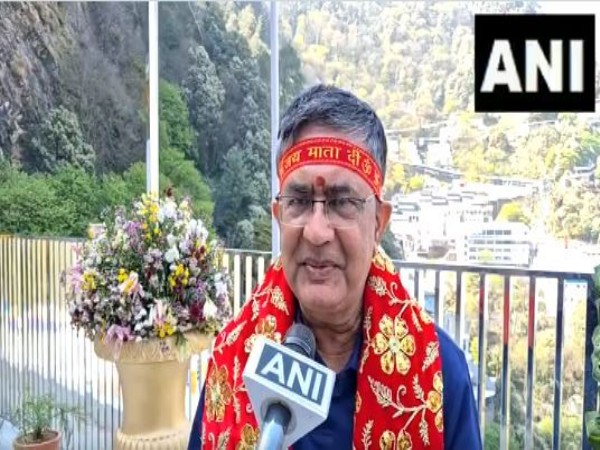German Chancellor's visit a testimony to renewed relations with India
Mar 02, 2023

New Delhi [India], March 2 : India's relationship with Germany in the past couple of decades has seen some significant developments all across different sectors.
The two countries have been enhancing their relations through various partnerships in the realm of defence cooperation, productive workforce migration, energy security and trade investments amongst other domains.
German Chancellor Olaf Scholz's visit to India also cemented their mutual will to further cooperate across the political, economic, security and defence realms.
The Chancellor, during his visit, was also accompanied by senior officials and a business delegation including CEOs from Siemens and SAP among other major firms as well as heads of the country's small and medium-sized business associations.
Germany is India's largest trade partner in the European Union and has also been one of India's largest sources of foreign direct investment.
The country at present is also looking to renew its engagement with the Global South by beginning to reach out to prominent emerging economies and India was among its first destination in such an endeavour.
More so, Berlin's outreach is clearly in line with the fact that bilateral trade between the two countries has progressed to a monumental USD 24.8 billion in FYI-22 alone.
This was also an important discussion point during the meeting held between both leaders, bringing back to focus the importance of enhancing trade and defence ties between the two nations.
Other key areas that were under deliberation during the meetings were German investment in transportation, chemicals, service sector, and automobiles amongst others in India due to the growing opportunities that India poses for the global economy.
Scholz's visit also comes in the backdrop of Germany's Foreign Minister's visit to the country in December of 2022 when the two counterparts signed a mobility partnership pact enabling people to study and work in each other's country.
The German Chancellor also went on to state that a prime objective of his visit was to strengthen their bilateral cooperation in matters of international importance including the transformation of both their economies, mitigating against climate change and striving for a sustainable future.
Mutual cooperation in these sectors also has the potential to open up newer avenues for both countries to work together in sectors such as pharma, renewable energy, and enhancing the digital economy among other initiatives that can be undertaken.
The talks for intensifying a free trade agreement between the European Union and India were also discussed where both the leaders noted the importance of having such an agreement for the mutual advancement of both their economic interests.
Moreover, to boost their defence cooperation, the German delegation also emphasised advancing a USD 5.2 billion agreement between the two countries to jointly build six conventional submarines on Indian shores.
This proposal if initiated will not only increase New Delhi's naval capabilities but will also introduce it to the latest technological advancements made in naval capacity-building measures.
The recently concluded visit has importantly also propelled the relations between the two countries into the domain of defence and bilateral security services as well.
With the intensification of relations, the avenues of defence and security have emerged as high-priority domains leading to scope for furthering the defence ties including industry cooperation while also enhancing the overall architecture of defence and security engagements.
More importantly, however, the leadership at the top in both countries have also played an invaluable role in concretizing the relations beyond specific sectors and has invigorated a deep-rooted relationship through various means.
The now-concluded trip was a testimony to the same commitment where the mutual trust between the two powers was emphasised upon.
The emerging potential of enhancing untapped growth for development is aplenty between the two emerging nations of the world, if not solely between the European Union and India.
Thus, Berlin and New Delhi both are wise enough to realize and better yet also capitalize upon such potentials that warrant cooperation between the two. Though minor obstacles still remain, they, however, must be dealt with through the right channels to quell any discomfort that may arise from either side.
Both Germany and India are on a path of reshaping the global order; especially with their commitment to reshaping multilateral institutions as well as their endeavour with the G4 grouping in revising the same.
Hence, it is not only desirable for both nations but is also in the larger interest of the global community that the two emerging nations who are mutually aligned in their shared values work in tandem for the development of the region as a whole.
German Chancellor's recently concluded visit, therefore, has been a step in the right direction, where avenues and domains have been widened for mutual cooperative development of two of the most aspiring countries in the current world order thus also raising the prospects of a greater voice of both in matters concerning their immediate interests as well.



















